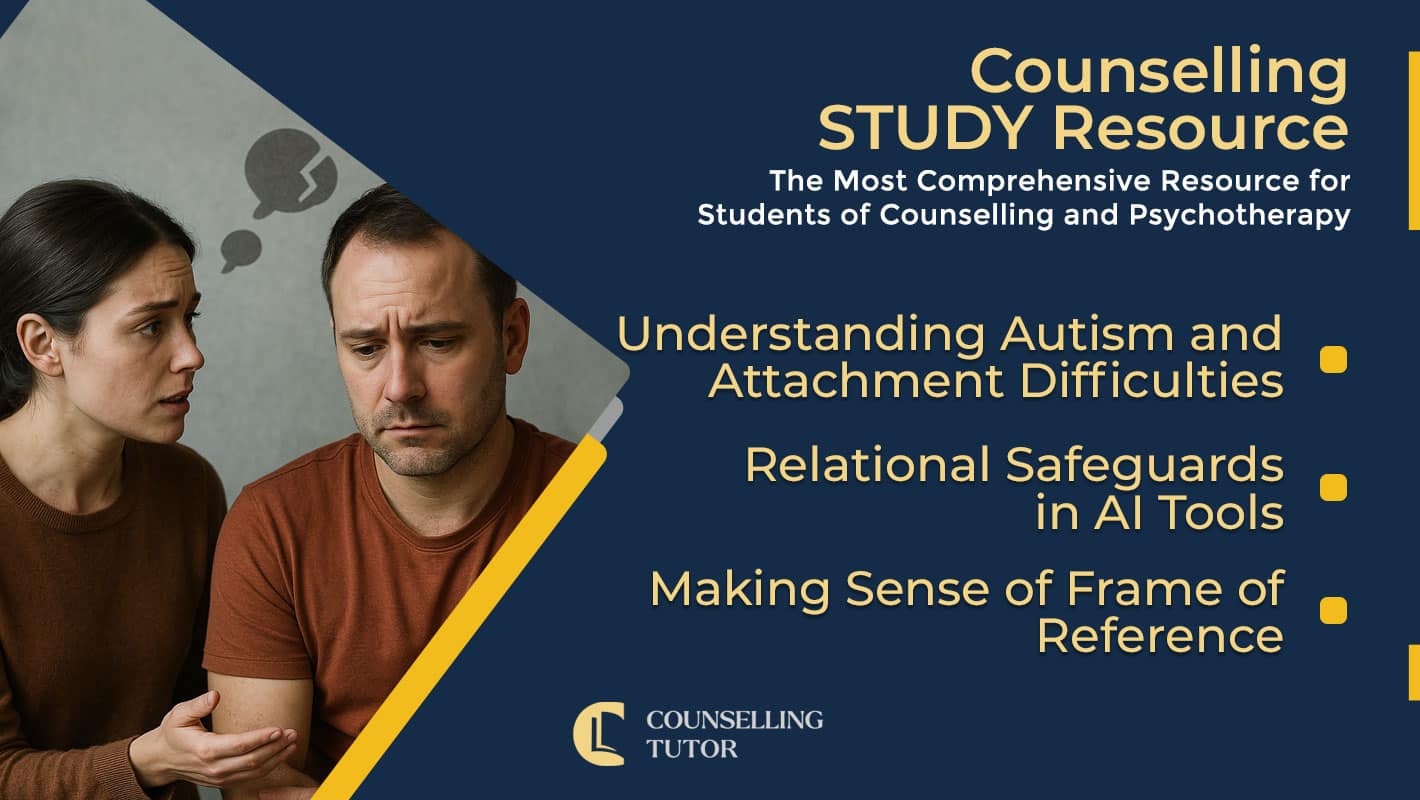See Counselling Skills Used in Real Sessions by Qualified Therapist
Real Sessions – Real Presentations – Real Skills
Gain the competence and confidence to use counselling techniques effectively!

In Episode 353 of the Counselling Tutor Podcast, your hosts Rory Lees-Oakes and Ken Kelly take us through this week’s three topics:
Firstly, in ‘Ethical, Sustainable Practice’, we look at where autism meets attachment, understanding autism and attachment difficulties – and how similarities and overlaps in presentation can be misinterpreted and what this means for therapists.
Then in ‘Practice Matters’, Rory speaks with Meg Moss, Head of Policy and Public Affairs at the NCPS, about relational safeguards in AI mental health tools – a timely discussion for any practitioner using or considering AI in practice.
And finally in ‘Student Services’, our correspondent Sarah Henry joins Rory to make sense of frame of reference – a foundational concept in person-centred therapy.
Understanding how autism and attachment difficulties can look similar – and why it matters.

Real Sessions – Real Presentations – Real Skills
Gain the competence and confidence to use counselling techniques effectively!
Meg Moss, Head of Policy and Public Affairs at the NCPS, outlines ethical principles for using AI tools in counselling and mental health.
Read more about the NCPS campaign, Therapeutic Relationships: The Human Connection

On-demand access to a rich lecture library covering theory, skills, and professional development for counselling students—Mapped to the UK awarding body criteria
“The Student Library has been BRILLIANT, I can’t recommend it enough!
It has been a lifeline in helping me prepare for practice and my first clients. If you’re considering it, go-for-it, it’s absolutely worth it!”
Kelly – Graduated and now in practice.
Exploring the importance and challenges of truly understanding another’s worldview.
Understanding Autism and Attachment Difficulties

Get on-demand Certified CPD that is implementable in your practice
